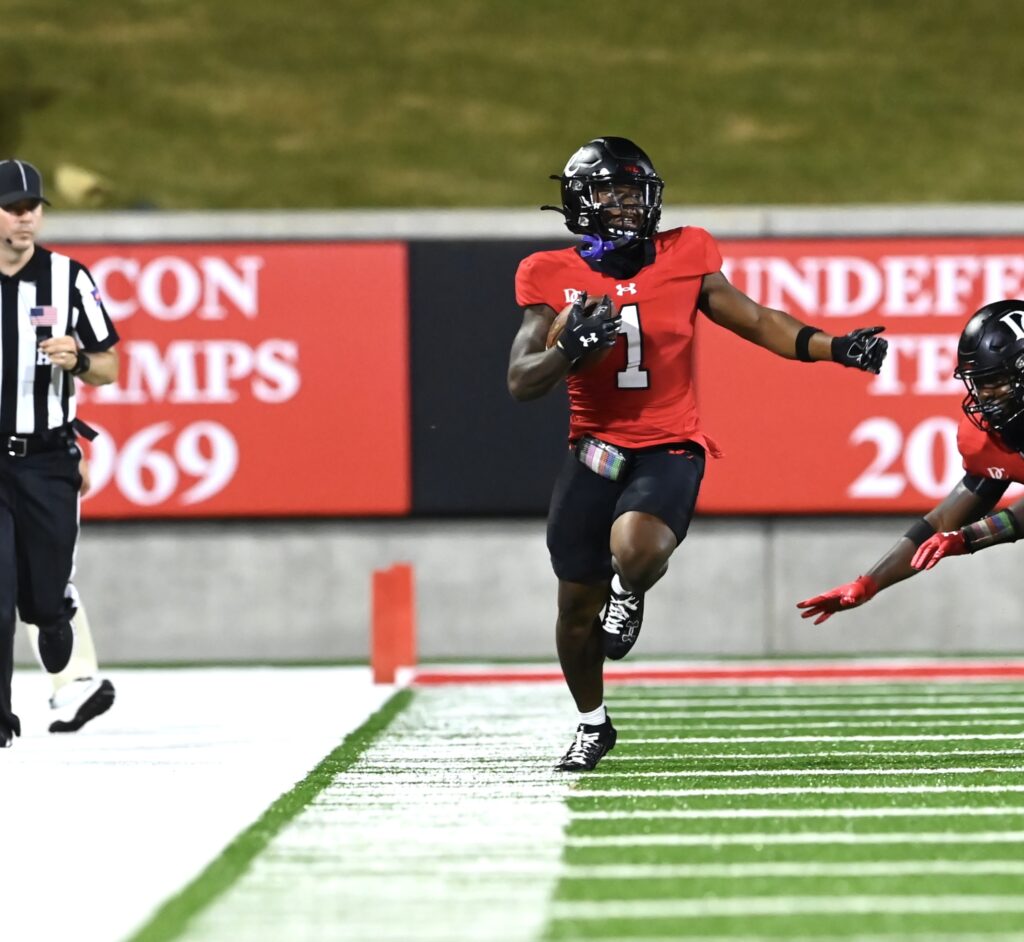Black History Month is a time to honor the strength, achievements, and resilience of Black individuals throughout history. At Athletes for Hope, we believe that celebrating Black student-athletes goes beyond just one month—it’s about recognizing their excellence, leadership, and the mental fortitude that carries them through the highs and lows of competition every day. Mental health is an integral part of an athlete’s success, yet it’s often overlooked. That’s why we’re spotlighting stories like Jaleel Sales’, who turned his struggles into a source of strength, faith, and advocacy.
Jaleel Sales on Faith, Mental Health, and Strength
Can you share a time when taking care of your mental health helped you overcome a challenge in your athletic career?
One of the most challenging periods in my athletic career came after enduring three consecutive injuries: a fractured hip, a broken femur, and a torn tricep. Twice, I was told I might never walk, run, or play football again. For someone who has always tied their identity to sports, leadership, and achievement, being sidelined year after year was more than just a physical setback—it was mentally exhausting. I wasn’t just recovering from injuries; I was battling frustration, depression, self-doubt, and the overwhelming question of who I was without football.

Growing up in a single-parent household, my mother instilled in me the values of resilience, hard work, and determination. Those lessons helped me push through the physical rehab, but I quickly realized that mental toughness isn’t about suppressing emotions—it’s about acknowledging them and learning how to manage them. I leaned into mental health practices like praying, opening up to teammates and mentors, and allowing myself to accept the temporary loss of something that had been central to my identity.
Through this process, I also grew closer to God. When I felt like everything was slipping away—my athletic future, my sense of purpose—I turned to my faith. Prayer became a ritual, not just for healing but for seeking strength, patience, and understanding. My relationship with God gave me a sense of peace that physical recovery alone couldn’t provide. It reminded me that my worth isn’t defined by accolades or accomplishments but by the character I build and the impact I have on others.
What truly helped was reframing my mindset. Instead of focusing solely on what I had lost, I shifted my attention to what I could still offer. I became a vocal leader from the sidelines, supporting younger teammates, sharing knowledge, and staying engaged with the game even when I couldn’t physically play. This not only helped me heal mentally but also reminded me that my value extends beyond athletic performance. My worth is rooted in my faith, resilience, and the connections I create with those around me.
These experiences fueled my passion for mental health advocacy. I’ve since worked to create spaces where athletes feel comfortable discussing their mental well-being, both through social media and initiatives I’m hoping to develop at Davidson. I want other athletes to know that taking care of your mental health isn’t just part of the recovery process—it’s a vital part of growth, leadership, and living a fulfilled life.
